Author Post: ‘The Holocaust Lady’
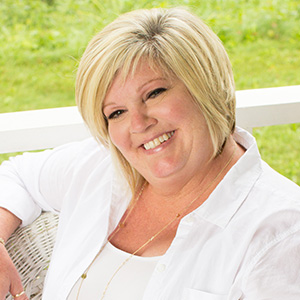 Aimee Ross is the author of Permanent Marker: A Memoir, an award-winning high school teacher, and a passionate educator about the horrors and history of the Holocaust. Here, Aimee explains how living and working in a small, rural town in Ohio fuels her desire to teach on that dark period of history.
Aimee Ross is the author of Permanent Marker: A Memoir, an award-winning high school teacher, and a passionate educator about the horrors and history of the Holocaust. Here, Aimee explains how living and working in a small, rural town in Ohio fuels her desire to teach on that dark period of history.
‘The Holocaust Lady’
I remember her words like it was yesterday.
March 2004, San Francisco, California: the Northern California Forum on Holocaust Education.
The United States Holocaust Memorial Museum had brought me in as a team member to run one of five classroom sessions, accommodating more than 200 attendees, including survivors. We had just finished a few days of sharing resources and strategies for teaching about the Holocaust, which included finding survivor testimony, when she approached.
“Excuse me, Aimee?”
I turned, smiling, still on the post-workshop adrenaline high that accompanied a job well done, to find a middle-aged face, surrounded by frizzy dark curls, pinched in a frown. The room had cleared except for a few people looking at resources on the periphery.
“You know, you or the museum should really research the area you’re going into a little more,” she said. “I teach at a Jewish day school here in the Bay area, and we have no trouble getting Holocaust survivors in the classroom.”
The harsh fluorescent lights overhead glared back at me from her wire-framed, circular glasses.
How should I respond? I didn’t want to speak on behalf of the Museum, because it wasn’t my place. Plus, I was only trying to help those who might not have the access to survivors that she did.
“Also—” she continued.
I tensed.
“You made it very clear that you are from a small, rural town and that you are not Jewish.”
“Yes,” I said. During the course of the workshop, I’d shared my background with participants, including the fact that I was not Jewish, but just to provide context for my pedagogy.
“What right do you think you have to teach about this then?” she accused.
A Journey of Learning
A tight pain crossed my forehead, and my cheeks flared. I didn’t know what to say. She’d caught me completely off guard, which must have been her goal, because she turned and stomped out of the room then.
Hot tears formed behind my eyes, threatening to spill.
That woman didn’t know me or my journey over the past nine years, searching out any and all chances to learn about the Holocaust. She didn’t know I’d gone on a study trip to Poland and Israel, or that I’d developed my own course on the Holocaust, or that I had been receiving hate mail from deniers for the past seven years. She didn’t know I’d won a national contest through the Museum for a lesson I’d created about pre-War Jewish life in Europe, or that I was preparing to take a second field trip with students to Washington, D.C., specifically to visit the Museum and hear a survivor speak. She didn’t know I’d written and won a grant to bring a Holocaust survivor to my hometown for a community presentation in the next month.
And she had no idea that the more I learned about the Holocaust, the more I felt compelled to teach the time period’s most important lesson: that we are all human beings sharing the same world, no better than anyone else.
‘Humanity Is Reason Enough’
Does someone really have to be Jewish to teach about the Holocaust? Does someone have to be a victim to teach about injustice? No.
Humanity is reason enough, and I have every right to teach about it. Even if I am from a small, rural town in Ohio, and even if I’m not Jewish, which is even more of a reason if you ask me. Because if I don’t teach about it, who will?
Today, fourteen years after that moment of negativity and criticism, I’m proud to say I continued educating other teachers and students about the dangers of disrespect and intolerance. I even earned the nickname “The Holocaust Lady”—at least locally.
I refused to let her words stop me.
Yes, they stung. And clearly, they left a permanent mark.
But I’m leaving one, too—one I know will last a heckuva lot longer.

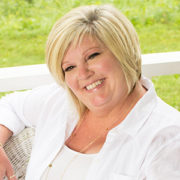
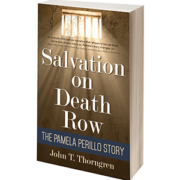
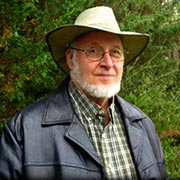 John T. Thorngren, author of
John T. Thorngren, author of 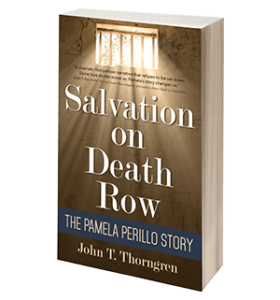 Still, I felt I needed to do something on behalf of all of those on Death Row, for we all have a purpose for our lives and the state should not take a life in revenge. Starting with a fictional heroine, condemned to lethal injection, I would create the great American novel about the injustice of the death penalty. But I needed some authentic background on the actual process. By divine chance, I found an old pen-pal request from Pamela Perillo, who had been on Texas Death Row and was still incarcerated at the Lane Murray Unit in Gatesville, Texas.
Still, I felt I needed to do something on behalf of all of those on Death Row, for we all have a purpose for our lives and the state should not take a life in revenge. Starting with a fictional heroine, condemned to lethal injection, I would create the great American novel about the injustice of the death penalty. But I needed some authentic background on the actual process. By divine chance, I found an old pen-pal request from Pamela Perillo, who had been on Texas Death Row and was still incarcerated at the Lane Murray Unit in Gatesville, Texas.
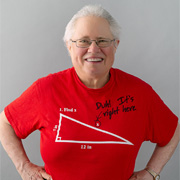 Barb’s ability to retain her sense of self no matter how many people were telling her she had to change. This is just one amazing aspect of her story. From her earliest years, she was told she shouldn’t draw traffic signals, she shouldn’t talk to buildings, she shouldn’t continue to pursue her own extremely creative method of dealing with the isolation life had dealt her. She resisted that pressure and held on to who she is. It cost her emotionally (and in other ways because of the drugs she was given as a child), but she did not lose who she is. And then, at the same time, she was constantly struggling with primary overarching questions: Why am I like I am? Why am I so different from everyone else that they refuse to accept me? And she never allowed that struggle to get the better of her.
Barb’s ability to retain her sense of self no matter how many people were telling her she had to change. This is just one amazing aspect of her story. From her earliest years, she was told she shouldn’t draw traffic signals, she shouldn’t talk to buildings, she shouldn’t continue to pursue her own extremely creative method of dealing with the isolation life had dealt her. She resisted that pressure and held on to who she is. It cost her emotionally (and in other ways because of the drugs she was given as a child), but she did not lose who she is. And then, at the same time, she was constantly struggling with primary overarching questions: Why am I like I am? Why am I so different from everyone else that they refuse to accept me? And she never allowed that struggle to get the better of her.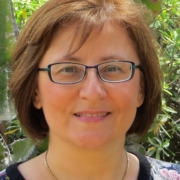
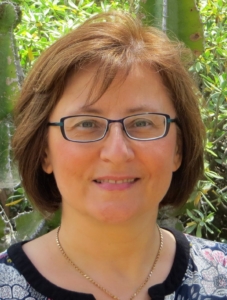 Sanja’s book, which will publish in September 2019, tells the story of the Bosnian War through the lens of Sanja’s own family. Having grown up in Bosnia, Sanja was in California on her honeymoon when war broke out in her homeland in 1992. As the country of Yugoslavia broke up, Sanja and her husband, Djeno, found themselves stateless refugees, worried about their family and loved ones who were suffering thousands of miles away.
Sanja’s book, which will publish in September 2019, tells the story of the Bosnian War through the lens of Sanja’s own family. Having grown up in Bosnia, Sanja was in California on her honeymoon when war broke out in her homeland in 1992. As the country of Yugoslavia broke up, Sanja and her husband, Djeno, found themselves stateless refugees, worried about their family and loved ones who were suffering thousands of miles away.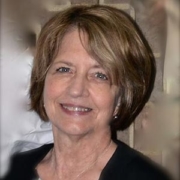
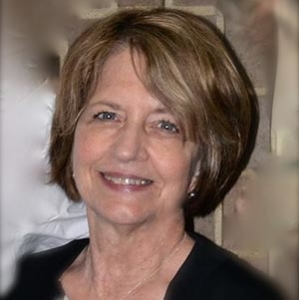 She’d lost her son Shawn to a tragic accident, endured a divorce from her college sweetheart, and now she was trying—again—to track down Laura, the beloved daughter she had adopted from Korea and who was in flight mode brought on by bipolar disorder.
She’d lost her son Shawn to a tragic accident, endured a divorce from her college sweetheart, and now she was trying—again—to track down Laura, the beloved daughter she had adopted from Korea and who was in flight mode brought on by bipolar disorder.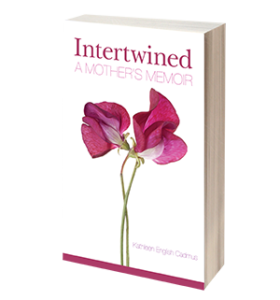 I started out a few years ago wanting to write about my son Shawn’s life and sudden death. I felt there was something there that might help other parents who had lost a child. My daughter, Laura, and I enrolled in two online writing classes at our community college. This led to my enrolling in graduate school and earning my MFA in creative writing five years later. As I became braver and bolder in my writing, and with the help of my writing mentors, I came to understand that Shawn’s life was the backstory to my unique mother-daughter journey. It was the writing and reflecting that made me realize my journey could help others. Writing inspired me to want to share my story.
I started out a few years ago wanting to write about my son Shawn’s life and sudden death. I felt there was something there that might help other parents who had lost a child. My daughter, Laura, and I enrolled in two online writing classes at our community college. This led to my enrolling in graduate school and earning my MFA in creative writing five years later. As I became braver and bolder in my writing, and with the help of my writing mentors, I came to understand that Shawn’s life was the backstory to my unique mother-daughter journey. It was the writing and reflecting that made me realize my journey could help others. Writing inspired me to want to share my story.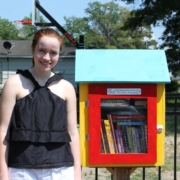
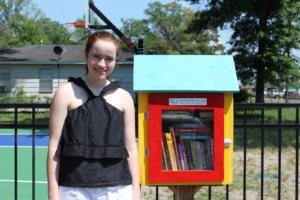
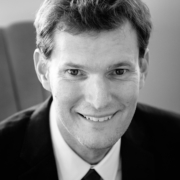
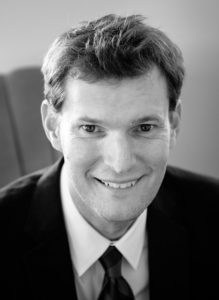 KiCam Projects is delighted to welcome Peter Bowling Anderson to our family of authors!
KiCam Projects is delighted to welcome Peter Bowling Anderson to our family of authors!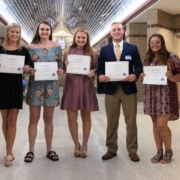
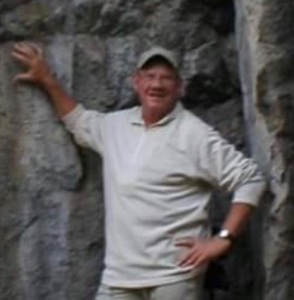
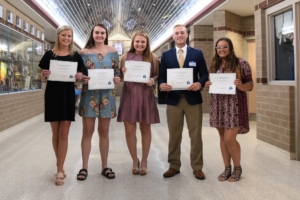
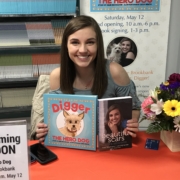
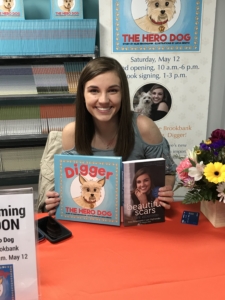 We’re honored and delighted to have been featured in the
We’re honored and delighted to have been featured in the  Dr. Scot Hodkiewicz is a veterinarian who lives in Lake Geneva, Wisconsin, with his wife, three children, and a menagerie of animals. He never intended to be a writer until he
Dr. Scot Hodkiewicz is a veterinarian who lives in Lake Geneva, Wisconsin, with his wife, three children, and a menagerie of animals. He never intended to be a writer until he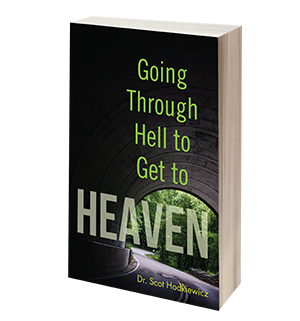 How did reliving your most painful experiences—a near-fatal car crash, the ensuing recovery, your addiction to pain pills—affect you? Did it feel therapeutic, or was it harder than you anticipated?
How did reliving your most painful experiences—a near-fatal car crash, the ensuing recovery, your addiction to pain pills—affect you? Did it feel therapeutic, or was it harder than you anticipated?
